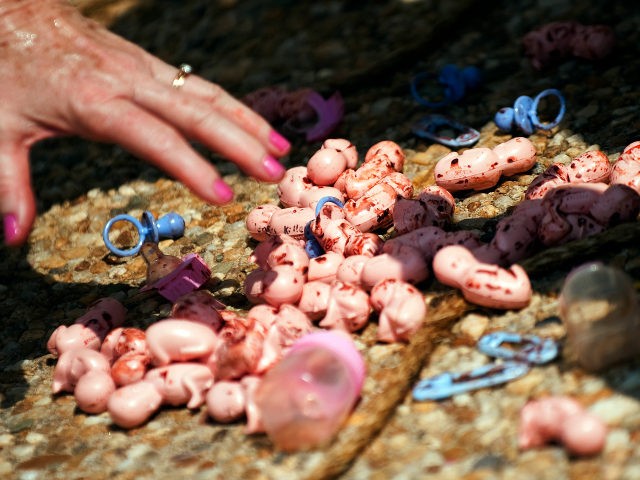A Dover, New Hampshire, art gallery will feature an exhibit titled, “Normalizing Abortion: Self-Portraits and Stories,” the aim of which is to showcase the abortion experiences of local women.
Deadline extended until 9/23/2019.
Posted by The Art Center on Tuesday, August 20, 2019
The exhibit will open at the Art Center in the Washington Street Mills on October 11 and continue until November 1. Phoenix Mayet, an artist and social justice activist, is curating the show, the proceeds of which will go to Planned Parenthood.
Mayet, who once worked for Planned Parenthood, said the exhibit is “decidedly pro-Roe v. Wade,” referring to the 1973 Supreme Court decision in which the Court invented a right to abortion, though none ever existed in the Constitution.
“I would like to provide a forum for people to talk about abortion and their experience with abortion in a way that normalizes it,” Mayet said, according to seacoastonline.com. She added she rejects the concept of “pro-life versus pro-choice” because both terms “ignore the complexity of an individual’s decision.”
Mayet is seeking submissions for the exhibit that range from “a cellphone selfie to an abstract photograph featuring personal items,” the report notes.
“The idea of self-portrait is open to creative interpretation,” she said. “We just want people to be able to stand up and allow themselves to be included in that community that has sought this solution, or resolution, to their pregnancy.”
According to seacoastonline.com, several presidential candidates have received invitations to the exhibit’s Oct. 18 opening reception.
The basis of the exhibit, according to the advertisement on the Art Center’s website, is the narrative of the abortion industry for many years that “approximately 1 in 4 American women will have an abortion at some point in her lifetime.”
This statistic is used to drive home the message that the procedure is commonplace and, therefore, “normal.”
The advertisement continues:
This means abortion is a common part of reproductive healthcare and a normal part of our collective experience. Yet, news coverage of the issue has sensationalized abortion by addressing only the most extreme cases, those involving rape, incest, or a woman who’s [sic] life is at risk.
According to the Centers for Disease Control and Prevention (CDC), however, the abortion rate is at its lowest rate since Roe v. Wade.
The federal agency states:
In 2015, 638,169 legal induced abortions were reported to CDC from 49 reporting areas. The abortion rate for 2015 was 11.8 abortions per 1,000 women aged 15–44 years, and the abortion ratio was 188 abortions per 1,000 live births.
Compared with 2014, the total number, rate, and ratio of reported abortions for 2015 decreased 2%. Additionally, from 2006 to 2015, the number, rate, and ratio of reported abortions decreased 24%, 26%, and 19%, respectively. In 2015, all three measures reached their lowest level for the entire period of analysis (2006—2015).
Mayet and Art Center owner Rebecca Proctor collaborated a few years ago for an exhibit titled “Faces of Feminism.” Proctor notes the current show would be accompanied by educational materials and representation from Planned Parenthood and other abortion rights groups.
“This is the time right now, it’s so important,” Proctor said.
The exhibit arrives as Planned Parenthood announced this week it would abandon federal family planning funding for its non-abortion patients because the Trump administration’s Protect Life Rule is returning to the original intent of the legal bans on federally funding of abortion. The rule states recipients of Title X family planning funding cannot refer women and girls for abortions – Planned Parenthood’s most lucrative service.
The abortion chain is portraying itself, however, as a victim of the Trump administration:
“I think there are people who are longing to find representation and to find an opportunity to articulate their own personal experience in this sweeping topic,” Mayet said about the exhibit. “It is such an incredible time for people to conduct themselves in conversations about difficult issues. We’ve become so polarized in a way that we can’t talk anymore. My goal is to allow us to talk together, as individuals who believe in reproductive choice.”

COMMENTS
Please let us know if you're having issues with commenting.